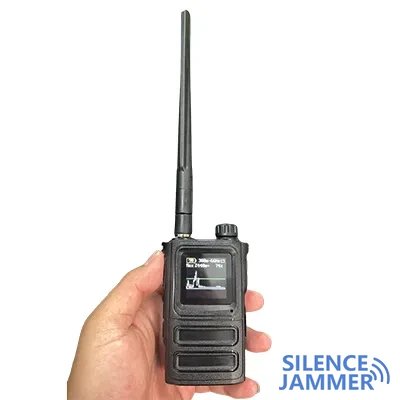Annoyances to the movie-going experience
If you are like me, you love to be immersed in the world of movies and don’t mind paying a high price for tickets and popcorn, then you certainly don’t like to be interrupted by other moviegoers’ smartphones during the movie. Even the dimmest phone screen can emit a conspicuous light in a dark theater, disrupting the viewing experience. If these interruptions were caused by an emergency, I might understand, but when I see someone checking their phone every 30 seconds, it is obviously not an emergency, they are just texting. Not only does this ruin my viewing experience, it also shows that this person doesn’t care about the content of the movie. If we can’t use phones safely and legally while driving, then it makes sense to ban phones in movie theaters. While it is not a safety issue, paying audiences should have a say in the theater’s distraction policy.

Discussion of cell phone jamming equipments in theaters
In an effort to cater to millennial customers, AMC Theaters CEO Adam Aron once said in Variety that they were considering allowing texting in some theaters. This statement immediately triggered a strong reaction from moviegoers on social media, forcing AMC Theaters to respond quickly and said: "Based on your suggestion, texting will not be allowed in the auditoriums of AMC theaters." The last thing theaters want is to alienate their loyal customers, especially when faced with competition from premium movie services, streaming, video on demand and home theater systems, as well as the nostalgia of drive-in theaters. If theaters do not pay attention to these issues, they may fall into the same predicament as large retail chains that lack foresight like Blockbuster. So, if theater chains agree that using mobile phones during movie viewing is unacceptable behavior, how will they implement this policy?
- Method 1: Self-management
- Method 2: RF Signal Jammers
Theaters can ask customers to exercise self-discipline and launch campaigns to remind audiences to turn off their phones. This method involves encouraging audiences to report violations to the box office or staff. However, this self-management method is difficult to maintain order in the theater, especially when angry audiences may take extreme measures such as throwing fruit candies and breaking mobile phone screens. If the audience themselves become the law enforcers, it may lead to conflicts and more interference.
Another method is to use RF signal jammers. These devices can be purchased online for less than $100 and are used to interfere with cell phone signals in theaters. These small jammers were originally designed for busy roads to keep drivers away from their phones. However, the problem is that the output power and range of these jammers are difficult to control and may cause unexpected interference.

Conclusion
The use of mobile phones in movie theaters is a common annoyance that affects the viewing experience of many audiences. Theaters can solve this problem by requesting self-regulation or using RF signal jammers. However, no matter which method is taken, it is necessary to balance the needs of the audience and laws and regulations. As technology advances, we look forward to finding more effective ways to enhance the viewing experience so that every audience can enjoy a distraction-free movie night.




